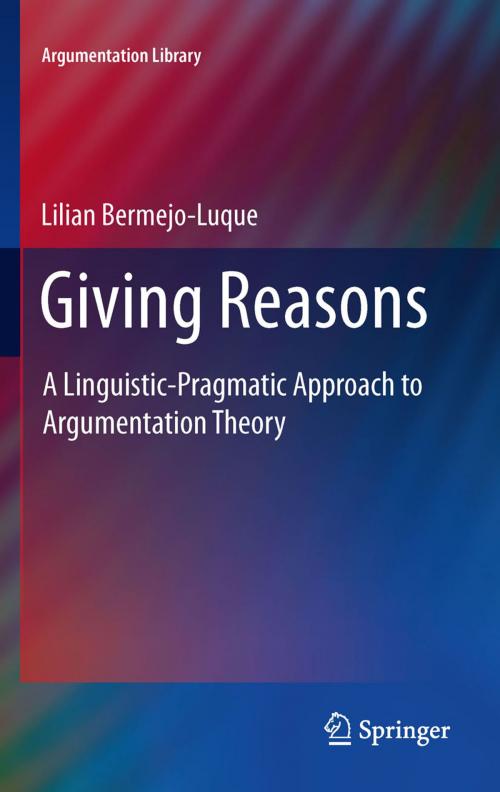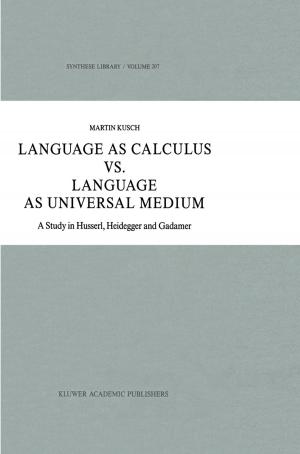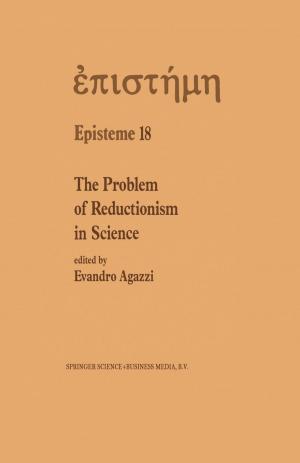Giving Reasons
A Linguistic-Pragmatic Approach to Argumentation Theory
Nonfiction, Religion & Spirituality, Philosophy, Logic, Reference & Language, Language Arts, Linguistics| Author: | Lilian Bermejo Luque | ISBN: | 9789400717619 |
| Publisher: | Springer Netherlands | Publication: | July 31, 2011 |
| Imprint: | Springer | Language: | English |
| Author: | Lilian Bermejo Luque |
| ISBN: | 9789400717619 |
| Publisher: | Springer Netherlands |
| Publication: | July 31, 2011 |
| Imprint: | Springer |
| Language: | English |
This book provides a new, linguistic approach to Argumentation Theory. Its main goal is to integrate the logical, dialectical and rhetorical dimensions of argumentation in a model providing a unitary treatment of its justificatory and persuasive powers. This model takes as its basis Speech Acts Theory in order to characterize argumentation as a second-order speech act complex. The result is a systematic and comprehensive theory of the interpretation, analysis and evaluation of arguments. This theory sheds light on the many faces of argumentative communication: verbal and non-verbal, monological and dialogical, literal and non-literal, ordinary and specialized.
The book takes into consideration the major current comprehensive accounts of good argumentation (Perelman’s New Rhetoric, Pragma-dialectics, the ARG model, the Epistemic Approach) and shows that these accounts have fundamental weaknesses rooted in their instrumentalist conception of argumentation as an activity oriented to a goal external to itself. Furthermore, the author addresses some challenging meta-theoretical questions such as the justification problem for Argumentation Theory models and the relationship between reasoning and arguing.
This book provides a new, linguistic approach to Argumentation Theory. Its main goal is to integrate the logical, dialectical and rhetorical dimensions of argumentation in a model providing a unitary treatment of its justificatory and persuasive powers. This model takes as its basis Speech Acts Theory in order to characterize argumentation as a second-order speech act complex. The result is a systematic and comprehensive theory of the interpretation, analysis and evaluation of arguments. This theory sheds light on the many faces of argumentative communication: verbal and non-verbal, monological and dialogical, literal and non-literal, ordinary and specialized.
The book takes into consideration the major current comprehensive accounts of good argumentation (Perelman’s New Rhetoric, Pragma-dialectics, the ARG model, the Epistemic Approach) and shows that these accounts have fundamental weaknesses rooted in their instrumentalist conception of argumentation as an activity oriented to a goal external to itself. Furthermore, the author addresses some challenging meta-theoretical questions such as the justification problem for Argumentation Theory models and the relationship between reasoning and arguing.















